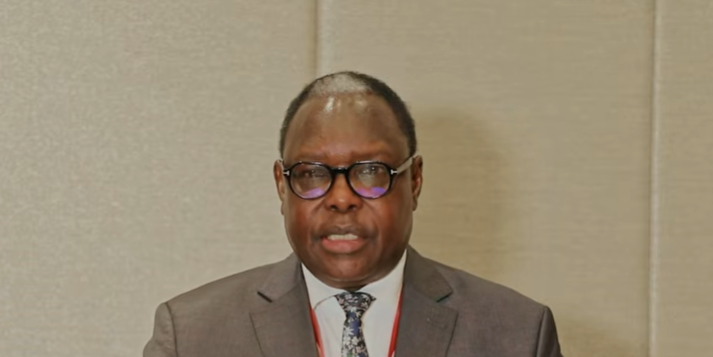South Sudan’s government threatened a crackdown on commercial banks it accuses of facilitating illicit capital flight, using the launch of a new national payments system to issue a stark warning to the financial sector.
Cabinet Affairs Minister Martin Elia Lomuro said the real-time payment and settlement system, launched by the central bank on Friday, would be used to force compliance with the country’s financial laws. He alleged that vast sums of money are being illegally moved out of the world’s youngest nation, at times by plane, with the complicity of lenders.
“From today, with this system, we expect the banks to be fully compliant,” Lomuro said in a speech to bankers and officials in the capital, Juba. “The end for abusing the sovereignty of the Republic of South Sudan must be ended and with immediate measures taken.”
Minister Lomuro framed the new technology as a critical tool for achieving economic independence and transparency.
System Modernization
The Bank of South Sudan said the new platform, the country’s first real-time payment system, is intended to modernize the financial sector, improve the speed and security of interbank transfers, and enable 24/7 transactions nationwide.
Central Bank Governor Dr. Addis Ababa Othow said the system will help manage liquidity, support effective monetary policy, and protect the value of the South Sudanese pound.
“This system will enable real-time payments 24 hours a day, seven days a week,” Othow said during the launch. “It will promote financial inclusion, especially for the rural population that has been left behind.”
Minister’s Allegations
Lomuro, however, focused his address on alleged misconduct. He stated he has a “personal interest” in the new system because he feels “the private banks in our country are not being controlled.”
He accused commercial banks of denying mortgages and business loans to South Sudanese citizens while providing financing to foreigners. “I can point at buildings and hotels owned by foreigners giving loans through some commercial banks in this country,” he said. “This must come to an end, and immediately so.”
Lomuro also challenged the influence of financial leaders, suggesting some managing directors wield excessive power. “This is the only country where some MDs are so powerful that they are even accompanied by national security. They are guarded. This must come to an end,” he said. “We cannot be bullied by MDs and CEOs.”
He explicitly warned that he has the power to summon banking leaders to answer to the cabinet, stating, “I can trigger anything that will bring you to the cabinet and you’ll answer.”
Directive to Agencies, NGOs
The minister also issued a directive to the country’s economic security agencies, which he said were absent from the launch, ordering them to use the new system to control the movement of money. “They know money is being carried out of our country. They know it,” Lomuro said.
Furthermore, he called out international organizations and non-governmental groups operating in South Sudan, demanding they keep their funds in the country’s banks instead of neighboring Kenya or Uganda.
The central bank said the financial sector will continue to adopt new technologies and innovations in interbank settlement. Governor Othow described the launch as a demonstration of the bank’s monetary independence and commitment to stronger financial management.
South Sudan’s economy is heavily dependent on oil revenues and has been plagued by hyperinflation, conflict, and corruption. Confidence in the banking system is already low, with many businesses and wealthy individuals preferring to hold assets in U.S. dollars or in banks in neighboring Kenya and Uganda.




